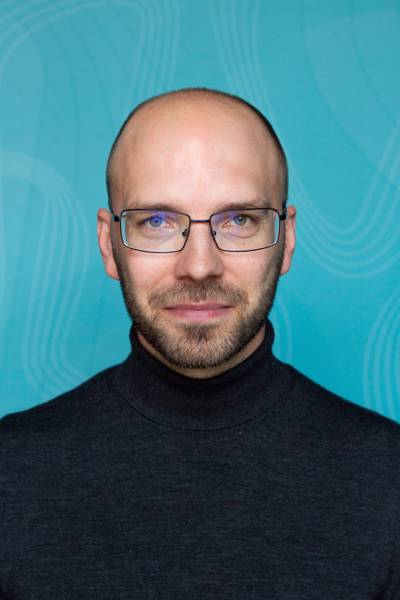Jørgen Jensehaugen: All news
47 news items
PRIO secures new funding for research on conflict, gender, security and human resilience
PRIO has recently secured several external research grants, highlighting strong confidence in the Institute’s research and its relevance to pressing global challenges.
Top 5 most-read PRIO policy briefs in 2025
The most-read PRIO policy briefs of 2025 covered key global conflict issues including Gaza’s humanitarian crisis, women’s exposure to violence, ethical challenges in peace processes and resource stress in fragile regions.
New Middle East and Nordic security projects secure external funding
PRIO is pleased to announce that two new research projects have secured external funding, strengthening the Institute’s work on protracted displacement in the Middle East and on Nordic security cooperation.
PhD course on Mass Mobilization and Democratization
As part of the NORHED II project Partnership for Peace: Better Higher Education for Resilient Societies, PRIO hosted a PhD-level course on Mass Mobilization and Democratization, from October 29 to 31.
PhD course on Conflict Trends
As part of the NORHED II project Partnership for Peace: Better Higher Education for Resilient Societies, PRIO hosted a PhD-level course Conflict Trends, 3-5 June. Siri Aas Rustad led the course.
New Study Reveals Human Impact of UNRWA Ban: Lifelines to Millions at Risk
New report outlines the on-the-ground consequences of Israel’s ban on UNRWA which comes into effect next week.
Media invitation: Seminar with UNRWA chief Philippe Lazzarini
Journalists are invited to a seminar on UNRWA under attack – saving the UN’s Palestine refugee agency, with its Commissioner-General Philippe Lazzarini.
PRIO at Arendalsuka 2024
Arendalsuka is an annual Norwegian political festival that brings together politicians, journalists, policy makers, aid organisations, civil society and the private sector.
PhD course on Gender, Peace and Conflict successfully convened
On 29-31 May, the GPS Centre, in collaboration with the NORHED II project, hosted doctoral candidates from all over the world at the PhD-level course "Gender, Peace and Conflict".
Call for PhD-Level Course: Ethics in Humanitarian Negotiation and Mediation
PRIO invites applications for this course on Ethics in Humanitarian Negotiation and Mediation which will be taught online 23-27 September 2024. The application deadline is 15 June.
Call for PhD-Level Course: Gender, Peace and Conflict
PRIO invites applications for this course on Gender, Peace and Conflict which will be taught in person in Oslo in May 2024. The application deadline is 15 March.
Top Eight Articles on the 1993 Oslo Peace Agreement
In 1993, secret negotiations took place in Oslo, Norway, aiming to start a process to resolve the conflict between Israel and the Palestinians. Thirty years later, PRIO researchers are still researching the Oslo Agreement and its implications.
New podcast series: FAIR: Ethics in Peace Negotiations
A new podcast series on ethics in peace negotiations is now available on Spotify.
PRIO at Arendalsuka 2023
Arendalsuka is an annual Norwegian political festival that brings together politicians, journalists, policy makers, aid organisations, civil society and the private sector.
PhD Course on International Mediation
The PRIO Research School on Peace and Conflict, in collaboration with the Kroc Institute for International Peace Studies, hosted doctoral candidates at the PhD-level course.
PhD course on Political Regimes
On 5-7 June PRIO hosted the PhD level course "Political regimes: Developments, Typologies and Consequences" as part of the Norhed II project.
Israel at 75
This year Israel celebrates 75 years since it was established.
Norwegian Foreign Minister Reviewed by PRIO Researchers
Ine Eriksen Søreide’s tenure as Norway’s Foreign Minister between 2017 and 2021 was reviewed by PRIO researchers Torunn L.
Call for Application to the PhD-level course “Political regimes: Developments, Typologies and Consequences"
PRIO invites applications for this course, which will be taught in person in Oslo on 5-7 June 2023.
Scenarios for UNRWA and the way forward. New report out
A CMI report co-authored by PRIO researcher Jørgen Jensehaugen takes stock of the UNRWA, its role and way forward in context of a funding crisis.
Election Day in Israel
Today, for the fifth time in just over three years, Israelis are holding an election.
FAIR project workshop takes place in Cyprus
The PRIO project “On Fair Terms: The Ethics of Peace Negotiations and Mediation” (FAIR) organized a workshop in Cyprus in partnership with the PRIO Cyprus Centre, PRIO Middle East Centre, and the PRIO Centre on Gender, Peace and Security, 19-21 October.
PhD Course on International Mediation
The PRIO Research School on Peace and Conflict, incollaboration with the Kroc Institute for International Peace Studies, hosted doctoralcandidates at the PhD-level course.
Abraham Accords on NRK Urix
Før måtte de skjule at de var jøder i arabiske land.
PhD Course on Gender, Peace and Conflict
Doctoral candidates from all over the world attended PRIO's PhD-level course on Gender, Peace and Conflict.
Transactional Engagements: Middle Eastern Responses to the Ukrainian War
Russia’s war in Ukraine has been met with global condemnation drawing NATO and the EU closer together in coordinating collective responses.
New PhD-Level Course: 'Migration Theory: Perspectives on Time and Temporalities'
PRIO invites applications for this course, which will be taught in person in Oslo in June 2022.
Migration-Related PhD Courses
Three migration-related PhD courses will be offered at PRIO in the course of 2022: (1) Migration theory: perspectives on time and temporalities, (2) Survey methods in migration research: design, implementation, and analysis, and (3) Ethnographic fieldwork methodology: approaches, tools, and ethics.
UNRWA’s Philippe Lazzarini Debates Palestinian Refugees at PRIO
What is the current status of the United Nations Relief and Works Agency (UNRWA)? What are its main challenges? What types of scenarios can we envision for UNRWA's future?These were some of the questions discussed today when the PRIO Middle East Centre and the Norwegian Ministry of Foreign Affairs hosted a roundtable with UNRWA Commissioner-General Philippe Lazzarini.
New Book on the Israel - Palestine Conflict
Jørgen Jensehaugen has just published the book En kort introduksjon til Israel - Palestina-konflikten.






